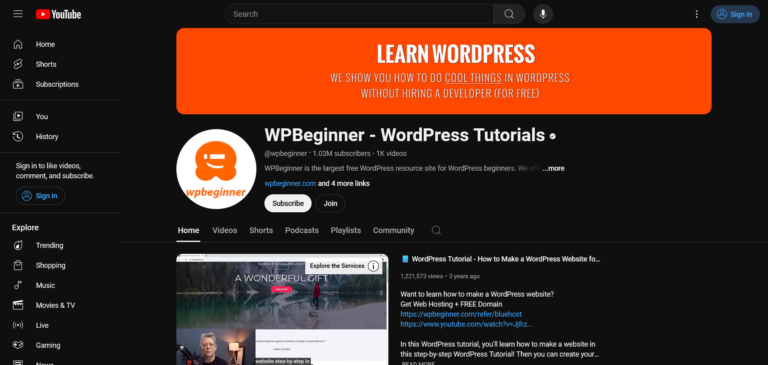4 Essential Website Pages Every Business Needs for Success
Key Take-aways
- Homepage: The face of your business, showcasing what you do and whom you serve, with a clear call-to-action.
- About Page: Provides visitors with your story, company values, and unique selling points, helping build trust.
- Contact Page: Offers multiple ways for visitors to reach you, tailored based on whether your business is local or national.
- Blog: Establishes your expertise by offering industry-relevant content that addresses different stages of the customer journey.
Your website is the digital storefront of your business, and it needs to make an outstanding first impression. To do this, it’s crucial to have the right pages in place that not only attract but also convert visitors into loyal customers. In this article, we’ll walk through the four essential pages every business website must have to effectively connect with and engage your audience.
1. Home Page: Your Digital Welcome Mat
The Home Page is where visitors form their first impression of your business. It’s vital to showcase what your business does clearly and concisely. Avoid leaving visitors guessing—spell out your services and benefits upfront. Your Home Page should also highlight who you serve, providing a clear indication of your target audience. This helps visitors quickly determine if your offerings match their needs, saving time for both parties.
- Clarity is Key: Make it obvious what your business does and who it serves.
- Highlight Benefits: Explain how your products or services can help solve their problems.
- Call-to-Action (CTA): Include a strong, clear CTA to guide visitors on the next step—whether it’s to learn more, sign up, or make a purchase.
2. About Page: Building Trust with Your Audience
After visiting the Home Page, curious visitors will often navigate to the About Page to learn more about your business. This page is your opportunity to establish trust and showcase your brand’s personality. Highlight your company’s history, values, and mission. Explain how you differ from the competition and why your approach benefits your customers.
- Tell Your Story: Share the journey of your business, including why it was founded and the mission driving it.
- Showcase Your Values: Let visitors know what your company stands for and how it aligns with their own values.
- Provide a CTA: Encourage further engagement, such as signing up for your newsletter or contacting you for more information.
3. Contact Page: Making Connection Easy
The Contact Page is where you provide your audience with the means to get in touch. Depending on whether your business is local or national, this page should offer a contact form, phone number, email, or even a map showing your location. Including multiple ways for customers to reach you builds credibility and trust, and using a form helps manage spam effectively.
- Contact Form: A simple, user-friendly form helps keep communication organized and spam-free.
- Phone and Address (if applicable): Essential for local businesses that depend on in-person visits or phone consultations.
- Social Media Links: Make it easy for visitors to connect with your business on their preferred platform.
4. Blog: Establishing Expertise and Authority
Finally, a Blog is essential for demonstrating your expertise and providing valuable content that engages your audience. Industry-specific blog posts allow you to address the different stages of the sales funnel, providing top, middle, and bottom-of-the-funnel content. A blog also helps with SEO, improving your site’s visibility in search engines. Each blog post should contain a call-to-action to encourage further interaction, such as signing up for a newsletter or exploring more services.
- Top-of-Funnel Content: Educate and attract potential customers with informative articles.
- Middle-of-Funnel Content: Engage and nurture leads with case studies, testimonials, or detailed product information.
- Bottom-of-Funnel Content: Convert leads with offers, demos, or compelling calls-to-action to make a purchase or book a consultation.
Setting up these four essential pages is your first step towards creating a powerful online presence. Each page serves a specific function in the customer journey, ensuring that your visitors get the information they need and take the next step toward becoming loyal clients. Implement these pages today, and watch as your website begins to attract and convert the right visitors for your business.

